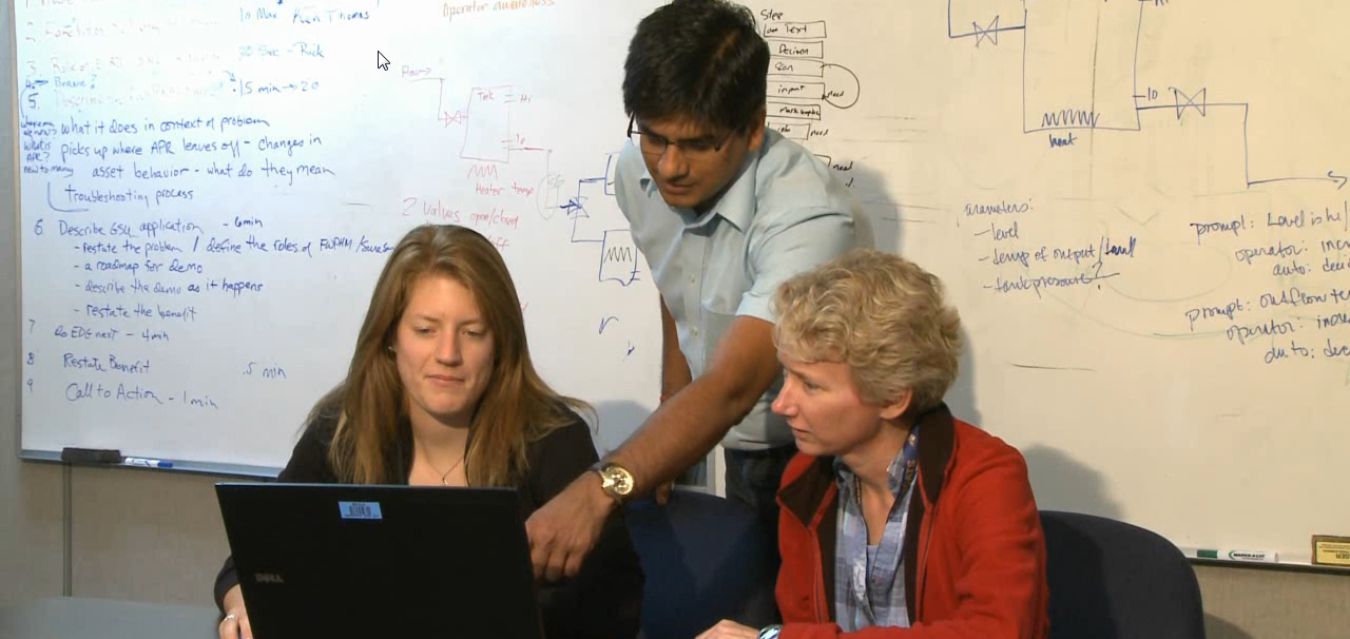Learn why Dr. Nancy Lybeck loves her job as Department Manager for the Human Factors, Controls, & Statistics Department at Idaho National Laboratory.
August 2, 2019
Dr. Nancy Lybeck graduated from Montana State University with a Ph.D. in Mathematics (with an emphasis in numerical analysis), followed by a postdoctoral fellowship in industrial mathematics at the Center for Research in Scientific Computation at North Carolina State University. Nancy is currently the Department Manager for the Human Factors, Controls, and Statistics Department at Idaho National Laboratory. She has extensive experience in data processing and analysis, and served as the technical lead for the Nuclear Data Management and Analysis System from 2014 - 2017. She has also provided modeling and analysis in support of code qualification of Alloy 617 for use in nuclear applications, statistical support for the High Performance Research Reactor fuel qualification program, and general analytical support for a variety of projects at INL. Prior to joining the INL in January 2010, she worked for Sentient Corporation, where she served as a Principal Investigator for several Small Business Innovation Research projects in the area of prognostic health management.
What inspired you to work in STEM?
I have always excelled in and enjoyed math and science, so STEM fields are a natural fit for me. My father was a mathematics professor at the University of Tennessee, and my mother was a math instructor there, so STEM education was definitely a priority in our household.
What excites you about your work at the Energy Department?
INL’s mission is to secure our nation’s energy future and critical infrastructure. We work on real world problems, with a range of team members from nuclear engineering, human factors (a psychology field), chemistry, etc. I truly enjoy working in the multidisciplinary environment found at Idaho National Laboratory (INL). Our data is often both messy and incomplete, and we have to be flexible, think outside the box, and learn to communicate technical results and concerns to team members who don’t have the same areas of expertise that we do.
How can our country engage more women, girls, and other underrepresented groups in STEM?
I think any opportunity we have to show youth that science and math can be fun, exciting, and rewarding is helpful. If we convey our enthusiasm and intrigue the students through hands-on activities, then we may spark the interest of students, particularly ones who have not had the advantage of positive exposure to STEM education and activities.
Do you have tips you'd recommend for someone looking to enter your field of work?
Math/statistics/data science are very dynamic careers today. I find that flexibility is a key asset. I strongly recommend having at least one programming language in your skill set. Take a class in database management. Take some science classes. Be willing to consider different types of careers. When I was graduate school, I envisioned myself working as a university professor. To my great surprise, I learned during my postdoc that working in industry could be a rewarding and challenging career for a mathematician. In many ways, working for a national laboratory is like a cross between academia and industry.
When you have free time, what are your hobbies?
I have always been a reader, give me a good book (usually a mystery!) and I am very happy. I very much enjoy many of the outdoor activities that Idaho has to offer: hiking, golf, skiing, snowshoeing, snowmobiling, etc. I also love going to the beach, especially if I can share the trip with my husband and two college-age children.
Learn more about our programs & resources for women and girls in STEM at /women

